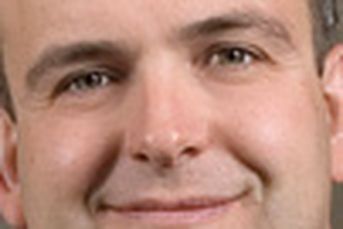Advisers’ clients are spending less, saving more, survey finds
Fifty-nine percent of independent investment advisers surveyed by The Charles Schwab Corp. in late January said that they expect consumer savings to increase over the next six months.
In a mixed sign for a U.S. economy driven by consumer spending, 59% of independent investment advisers surveyed by The Charles Schwab Corp. in late January said that they expect consumer savings to increase over the next six months.
Schwab’s semiannual Independent Advisor Outlook Study, released last week, found advisers opining that the most lasting influences of the 2008 and early-2009 market debacles on consumer behavior will be “frugal spending habits” (cited by 32% of advisers) and a “focus on saving money” (26%).
The results of the survey are somewhat at odds with those of a rather upbeat report from the government last week which showed that consumer spending rose by 0.1% in December and another 0.3% in January.
Economists at Northern Trust Corp., for example, issued a report, “Strength in Consumer Spending is a Big Plus for Q1 GDP,” in which they estimated that spending in February and March will conservatively grow by 2.5%, almost double the pace of the fourth quarter of 2009.
The Northern Trust report did caution that “soft” employment conditions and “fragile” household balance sheets point to only moderate growth in consumer spending in upcoming quarters.
Schwab said consumers’ new caution is good for registered investment advisers, who not coincidentally buy investment products and trading services for their clients through the discount broker.
“Advisers tell us that the pain of the last 18 months may have been the catalyst for some positive behavioral changes regarding saving and personal financial responsibility,” Bernie Clark, head of Schwab Advisor Services, said in a statement. “The recent downturn also made many people realize that they need help and guidance, and advisers can play an important role in helping people achieve their long-term goals.”
The journey won’t be easy — but the outlook has brightened somewhat, according to the study.
Fifty-seven percent of advisers surveyed said that achieving client goals will be “very or somewhat difficult.” That compares with 84% who felt that way a year ago.
Similarly, almost one-third of respondents said that their clients still required reassurance during the past six months, down from 49% who said that they were calming jittery investor nerves in January 2009.
Continuing a trend identified in Schwab’s July 2009 survey, advisers appear to be moving clients out of fixed income and cash, and into large-cap equities, particularly international large-cap.
A third of the advisers responding to the most recent survey said that they plan to invest more in emerging-markets large-cap stocks, and 28% in large-cap stocks from developed markets. Just over one-quarter of advisers (26%) expect to increase their investments in U.S. large-cap stocks.
About 16% plan to invest more in fixed income, compared with a high of 42% who gave that response in January 2009.
Schwab, which late last year introduced a crop of proprietary exchange-traded funds, said that ETFs are advisers’ preferred investment vehicles, with 36% in the survey planning to invest more in them during the next six months.
Schwab said that the survey gives further support to the credibility of the independent advisory model. Half of the 92% of advisers who attracted new clients in the previous six months said that those clients came from full-service wirehouse firms.
Similarly, 83% of advisers cited their role as fiduciaries as helping them win new business, while 65% said that their new clients moved in part because they had lost trust in their previous firm.
The survey — of more than 1,100 advisers — was conducted Jan. 19-29 by Koski Research. It has a 2.96% margin of error, Schwab said.
E-mail Jed Horowitz at [email protected].
Learn more about reprints and licensing for this article.




